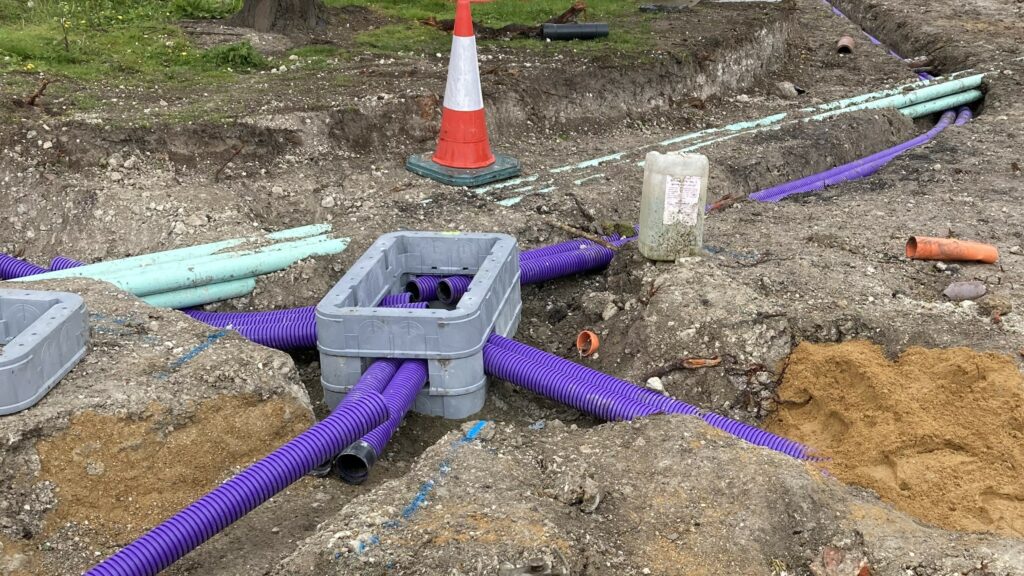210,000 rural homes and businesses in East of England to benefit from £5 billion broadband levelling up fund

August 2021: Further details about this announcement can be found on the Government website.
- Hard-to-reach premises across Norfolk and Suffolk to benefit from £5 billion government scheme
- Brings total number of premises eligible for Project Gigabit in East of England to 309,200
- Plans will see hundreds of millions of investment in next-generation networks
Rural homes and businesses across Norfolk and Suffolk will get next-generation gigabit broadband built to them under a £5 billion plan to level up internet access across the UK.
New details published today from Project Gigabit, a government scheme to upgrade broadband infrastructure in hard-to-reach areas, reveal that up to 210,000 rural homes and businesses in the region and surrounding areas are in line to be connected to lightning-fast speeds.
This is in addition to commercial providers’ roll out which is seeing gigabit broadband being deployed rapidly across the country – from one in ten households in the UK in 2019 to more than two in five today. The country is also on track for one of the fastest rollouts in Europe and for 60 per cent of all households to have access to gigabit speeds by the end of this year.
The Project Gigabit programme targets properties that would otherwise have been left behind in broadband companies’ rollout plans, prioritising those that currently have the slowest connections.
Their available speeds will rocket to more than 1,000 megabits or one gigabit per second – enough to download a HD movie in less than 30 seconds and lay the foundations for tomorrow’s tech such as 8K-quality video streaming.
It means families no longer having to battle over bandwidth and will give people in rural areas the freedom to live and work more flexibly with the speed and reliability needed to start and run
businesses.
The government expects to invest between £115 million and £195 million in Norfolk and between £89 million and £151 million in Suffolk to build the networks.
It brings the current total number of eligible premises through the programme in the East of England to 309,000, with Cambridgeshire and adjacent areas already set to see nearly 100,000 properties connected through the scheme. Work to connect this area will begin in September 2022 and will see between £95 million and £161 million investment.

More investment into areas in the East of England is also planned and more details will be announced in due course.
Digital Secretary Oliver Dowden said: “We’re powering ahead in our national mission to level up the regions and build back better.
“Today we can reveal how our £5 billion Project Gigabit broadband fund is going to help rural communities across England’s eastern counties get access to lightning-fast internet connections and give people the freedom to live and work flexibly and seize the benefits of modern technology.”
Project Gigabit will incentivise network providers to build in areas deemed ‘commercially unviable’. Areas with the largest proportion of premises identified as hard-to-reach or connected to slow speeds will be first in line for support.
Project Gigabit will accelerate our recovery from covid, fire up high growth sectors like tech and the creative industries and level up the country, spreading wealth and creating jobs the breadth of Britain.
Cllr Tom Fitzpatrick from Norfolk County Council, cabinet member for Innovation, Transformation and Performance, said: “Norfolk County Council is committed to making Norfolk the best connected rural county in the country and we are striving for 100% availability of fast broadband to all Norfolk properties.
“We welcome this latest announcement from DCMS about further significant investment in Norfolk’s digital infrastructure. We welcome the huge benefits this will bring and are delighted with the high priority that Norfolk has been given.
“Project Gigabit will help our residents to fully benefit from digital opportunities, help our businesses grow and improve their profitability, and significantly benefit our rural economy.”
Additional information on the table
- Contract commencement date: The start date of the new commercial activity.
- Number of premises: The number of premises in scope of the procurement and expected to be uncommercial and require public funding – either as modelled by DCMS or as superseded
following Public Review and Pre-Procurement Market Engagement. This value may change significantly leading up to commencement of the procurement process.
Related Posts

Connecting Cambridgeshire’s work for Cambridgeshire County Council shortlisted for two LGC Awards

Dig Once Policy delivers carbon savings and improved connectivity across Cambridgeshire

